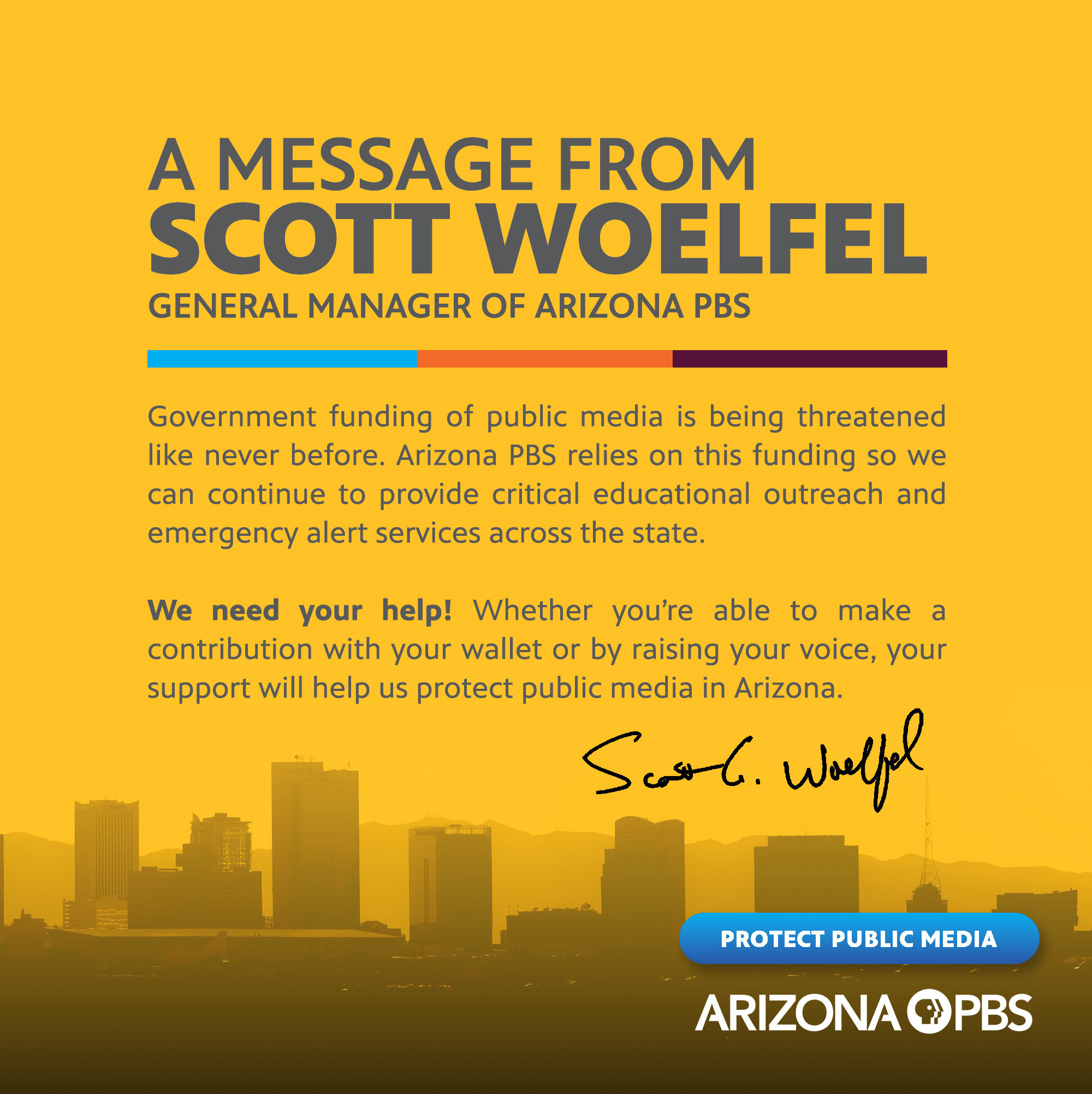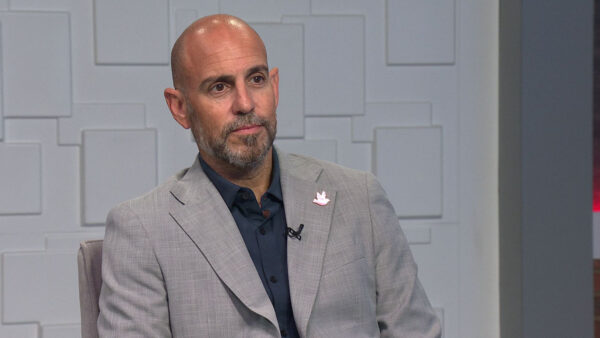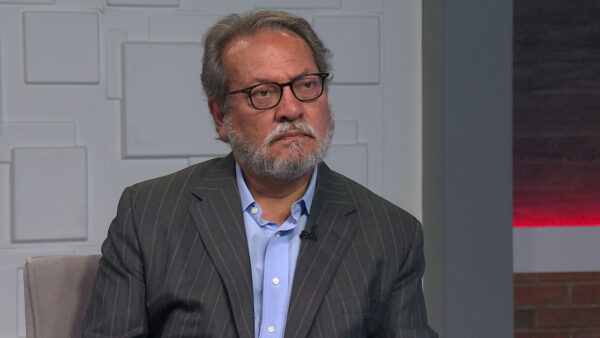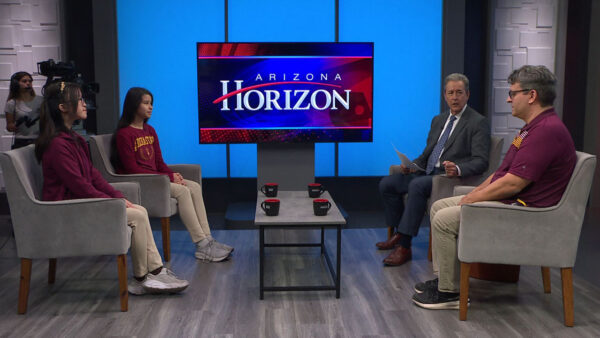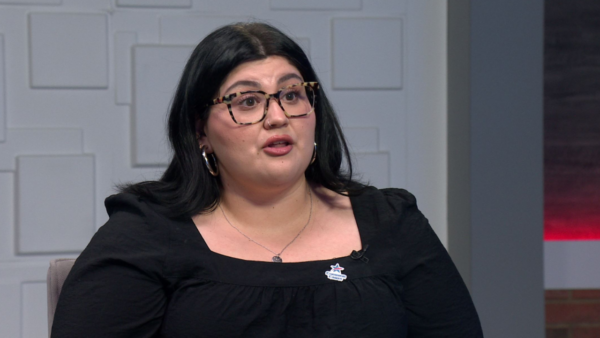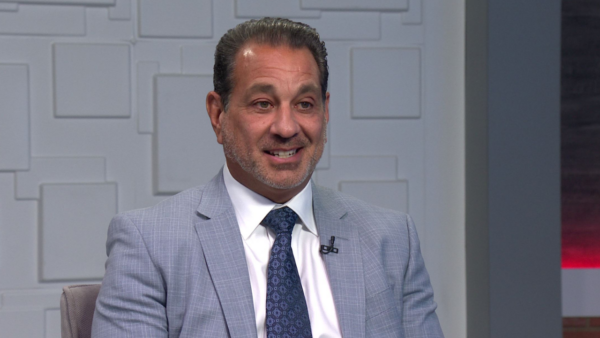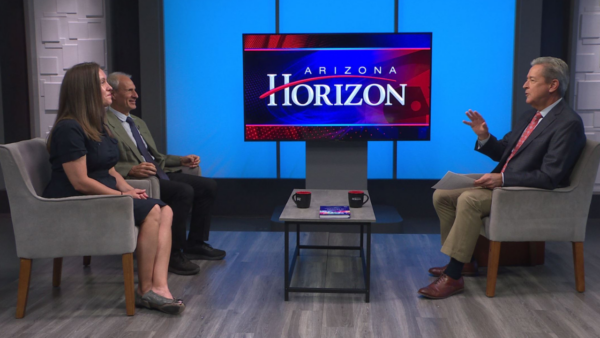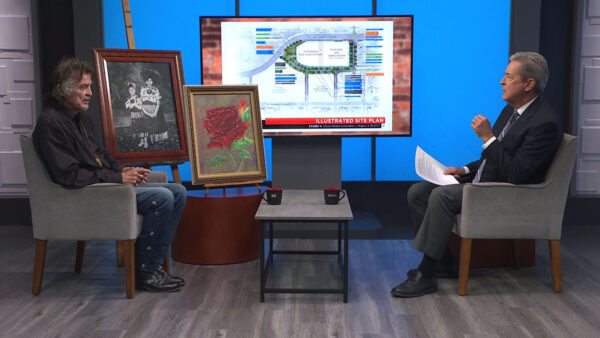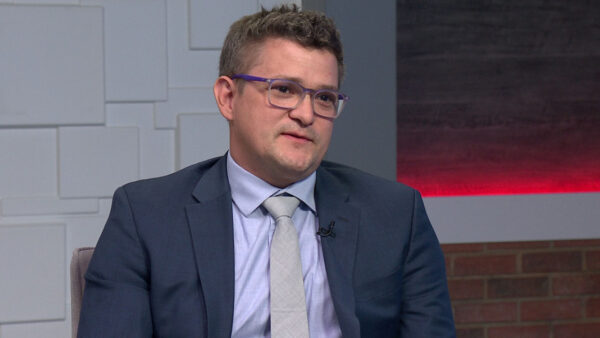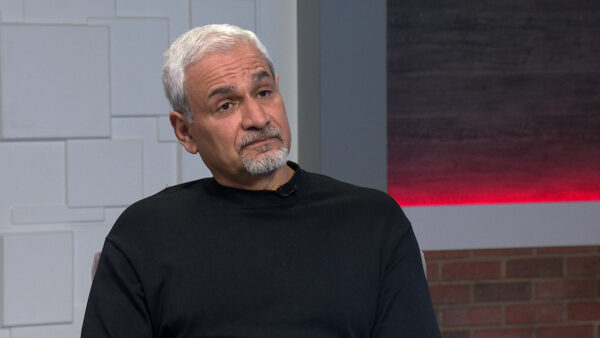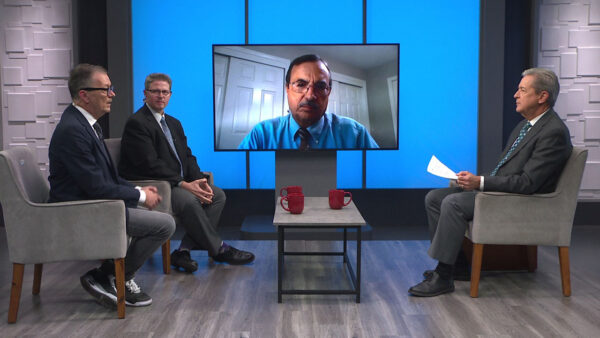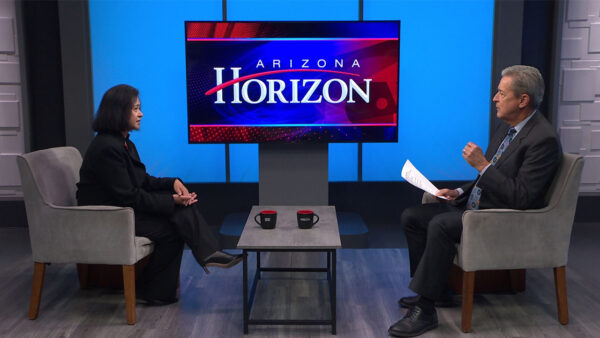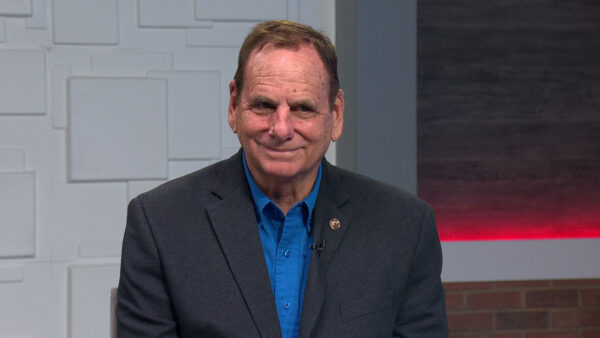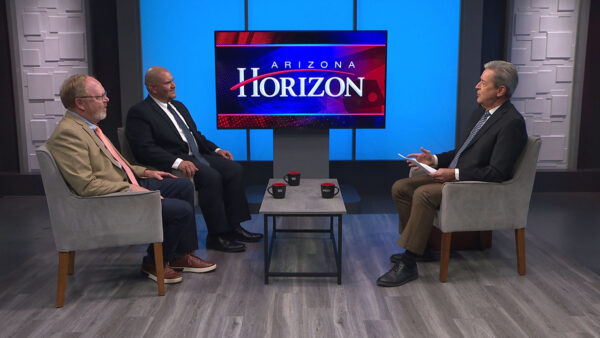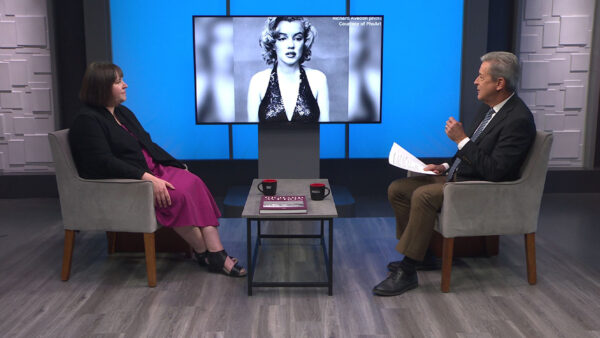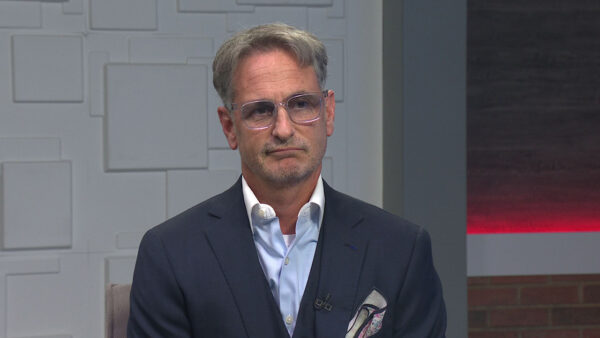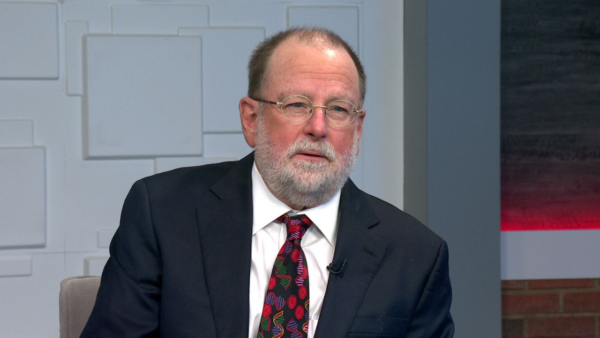Daniel Baldwin is one of the four famous Baldwin brothers, all actors. He will discuss his 20-year addiction to drugs and his efforts to help those still fighting the battle along with Greg Hannley, founder of SOBA Recovery Centers, which has a location in Mesa.
Ted Simons: Daniel Baldwin is best known for his acting roles, his celebrity status and for being a Baldwin brother. He's known for a long and sometimes public fight against addiction. And he is now helping those still fighting that battle. Joining us now to talk about drug addiction is Daniel Baldwin and we also welcome Greg Hannley, founder of Soba Recovery Centers in Mesa. It's good to have you both here, thanks for joining us.
Daniel Baldwin: Thanks for having us.
Ted Simons: You have described yourself as the drug one of the Baldwin brothers. How did this, how did the bad times begin for you?
Daniel Baldwin: You know, I came from a middle class family. My dad was a schoolteacher with six kids. So I think that making money was a big part of it and getting, in and around the scene in the '80s when I started to, my career started to flourish. And so I got around people. And I really didn't know much about the drug world. I was an athlete in high school and college. And here I was, at a party. I remember the first time I ever did cocaine. And I was at a party with very famous person's home. And I remember the first time I tried it and I thought, wow, I feel really great now. And then I was very euphoric to me. Little did I realize six months later it gripped me so quickly I was in rehab.
Ted Simons: So you can really relate it back to one incident?
Daniel Baldwin: The first time I ever smoked cocaine was, yeah, I chased that for years.
Ted Simons: Is that -- do you hear that a lot? Where it's, would it have been better for him if he had had a lousy experience?
Greg Hannley: Yeah. It's like winning the slot machine your first time. A lot of times, so they say when you do that, it's kind of like having a gorilla have a grip around your neck that you don't stop the gorilla until it's ready to stop. So when he had a big experience like that, that's a tricky part of most drugs that people are using is that they fool you into thinking things are going good. And until they get really bad.
Ted Simons: And they got really bad. Was it a variety of things you were addicted to? Was it more than one? I mean what's going on?
Daniel Baldwin: No, no, for me, it was pretty much cocaine. And the interesting thing is, you start to do it like, and I think most alcoholics or addicts will describe this. It really doesn't have a huge effect on your life. After you start to use it more and more often, 10% of the time it's not so great because you start to tell lies to cover yourself. But 90%, and suddenly that becomes 70-30 and then 60-40 and then it's terrible. You find yourself doing it over and over again. And you really don't -- I got so hung up on why. Why is this happening? Why do I keep doing this? And you know what? I had a guy -- I had a guy say to me one time, do you know that a black hole is the only thing that doesn't subscribe to Newton's law? For every action there's an equal and opposite reaction. I looked at him and said, why is that? Why is that? I said I really don't know. So you have gotten by not knowing that one, too, haven't you?
Ted Simons: Interesting. Interesting. But 20 years. This went on for 20 years?
Daniel Baldwin: 20 years.
You were in and out of rehab, what nine?
Daniel Baldwin: Nine times.
Ted Simons: Ok, what was not working in those rehabs
Daniel Baldwin: I'll tell you what's not working. And in correlation with the fact that Greg who is my sponsor and my best friend, and mentor, his program was the last one I went to. And the difference was, there was a direct correlation with longevity of stay and how long you stay sober. And that's a fact. And so a lot of the stereotypical 30-day insurance models are, let's clean them up and get them back to work whenever. We would not take our eight-year-old child, teach them the language, take them basic skills and throw them out on the street either, would we? There's a transitional period involved here that takes months. It took years into the rehab. It takes a year or better to get out.
Ted Simons: That's something obviously, do you discover this on your own? Was it just obvious to you that these people aren't ready to get out of here yet?
Greg Hannley: Well, yeah. I saw the traditional rehabs weren't working. The 30-day models. And you hear percentages and it's less than 2%. So people, they come up with a bunch of money or they figure out a way to get somebody into a 30-day rehab. And it's kind of a dirty secret that it doesn't work. And they're actually designed to fail. Because the people come back and come back and come back. And they get more money. So through working with the JCAHO accreditation, a guy who did 30 years of mental health working with accrediting rehabs, I asked him, of all of these things we are doing, and when you are accredited you do anything you can imagine. What is the most important? And he said length of time. So at six months of consistent treatment, the percentage will go up to around 60 to 70% of the people will maintain their recovery. And what I am seeing is that at a year, 90% will get multiple years.
Ted Simons: Wow. That's really, that is very interesting. I haven't really heard that but it makes sense, doesn't it?
Daniel Baldwin: Of course it does. Because listen, you go in. Here's the reason why and why this worked for me. This is a by product of the drug addiction of probably some underlying issues. So with that said, you go in and you already have trust issues. You are in a complete fog the first couple weeks there. You start to actually sleep and eat and get around. So the webs get clear after about two weeks. You got two weeks to sit across from someone you've never met in your life and tell them all the deep, dark secrets of your life. That's not going to happen. It takes months to establish that trust to get to the underlying reasons as to why you are using drugs and alcohol to numb some of these feelings.
Ted Simons: Did you get to your underlying reasons?
Daniel Baldwin: I did.
Ted Simons: When you got to these underlying reasons, were you surprised?
I was surprised -- well, again, remember, too, I got to them and I processed them in therapy. I am pretty hard core stuff, too. But I did that under the protective umbrella of the community that's all sober. And having to adhere to the guidelines of working my steps and having to report in, monitored so you were being honest about it. So all those things helped me that when I went through some of that painful stuff, I didn't have to go through it alone. I had the community with me. And so that was really helpful.
Ted Simons: But it was helpful but sometimes we hear about this in psychology all the time. People will find out, I never knew I might've resented my dog or whatever the reason.
Daniel Baldwin: Sure. I hated that dog!
Ted Simons: But was it something you are sitting there going, my goodness, I didn't realize it affected me that much?
Daniel Baldwin: I didn't realize -- resentments are killers. Resentments are killers, I mean, would you agree?
Greg Hannley: That's the worst. And they are therapies. There's an EMDR therapy that is designed for trauma that takes you kind of back and figures out what was bugging you. And most people find just like you were saying, that it wasn't the most obvious thing. It was something else. So you would think that some horrible life event is what triggered somebody and they find they got left at the baseball field when they were six. And it scared them.
Ted Simons: Yeah.
Greg Hannley: And they didn't ever know until they went back into it. And then dealt with it. And you can't figure this out in 30 days. It doesn't work like that.
Ted Simons: When someone comes in, let's say it's resentment right now. And they hit that mark. And all of a sudden you are seeing progress, recognition, understanding. Does that necessarily mean that addiction is going to be affected?
Greg Hannley: I don't understand what --
Ted Simons: Well, if you are finding out what an underlying cause to the addiction is, and you got it, you know it.
Greg Hannley: It's going to be part of it.
Ted Simons: I was going to say --
Greg Hannley: It's going to be part of it. So you have medical, psychological, psychiatric, social, spiritual, nutrition and fitness, and especially in today's world. So you are talking about Daniel, 20 years ago, where it was the guy who goes to rehab is a guy who is 30 years old, alcoholic, or cocaine, right now, the country is under an epidemic new heroin resurgence from 20 to 25-year-old young people. And they -- and by the time they get to rehab, they need to have every bit of that including vocational to be able to reenter society. And especially the social part. If you take a young person, so these percentages that we are telling you, that might be guys like him and I. So a young 20-year-old kid who is on heroin, and all of his friends are, who these aren't downtown heroin addicts. These are out in the suburbs. They can't go home where all their buddies are doing it, too, for a long time. They have to socially learn to reintegrate.
Ted Simons: Can the 20 to 25-year-old heroin addict, any kind of an addict, how can they identify with you? How do you get through to these?
Daniel Baldwin: Well, I think the most important thing is the commonality of the helplessness. There were many times that I had those moments and I said, I don't want to do this anymore. I really -- you do know there are those moments of clarity. When you say I just don't want -- and then there's the arrests and the parents and the failed relationships. And they have those. They have the parents on their case. Which is no different than the spouse for us when we got older. They see the failure. When they clang that door behind you and the guy in the uniform is on the other side of those bars, we all know something's not right. Our freedoms are being taken away from us. And I had to experience that, too. There's a lot -- but I think the helplessness of, you know what? I can't stop? And the answer is. You can, you just probably can't do it on your own. You need some help.
Ted Simons: Is there a mixed message in Hollywood when it comes to addiction? There was -- seems like recently but probably wasn't. Some people were going to AA meetings as a career move because that's where everyone was. That kind of a thing.
Daniel Baldwin: We see a lot of that stuff in Malibu. They get dressed up and god bless them, they are in the room. Hopefully they find the mirror rubs off on them one way or another. There's definitely people that show up for different reasons. But as a whole the program is a pretty strong program.
Ted Simons: You got a star here. He's got a message. How does that message resonate again with 20 to 25-year-old, a 50-year-old who has never even been to Hollywood and wouldn't know a stage if you threw him on one in the next minute? How do you make that connection?
Greg Hannley: Well, with me, sometimes I would be sitting next to somebody that I would think, if they need to be here, I certainly don't. I am a regular guy from Tucson. And sitting next to Baldwin in a meeting, it would kind of give me a little bit of thoughtfulness that, if he needs it, certainly I could. And he connects. And we connect at a different level. At one addict talking to another, or one alcoholic talking to another, we are able to speak a language that a parent couldn't get through in a year and five minutes, I can sit a kid down and go, hey, you know, I know how you feel. And you don't have to feel like this anymore.
Ted Simons: Well we got to stop it right there. Great conversation. Congratulations to you.
Daniel Baldwin: Thank you so much.
Ted Simons: How long has it been now?
Daniel Baldwin: One day at a time.
Ted Simons: There you go.
Ted Simons: Congratulations. Congratulations to both of you. And thank you both for being here, we appreciate it.
Daniel Baldwin: Thank you for having us.
Greg Hannley: Thank you.
Greg Hannley: Founder of SOBA Recovery Centers,Daniel Baldwin:Actor
